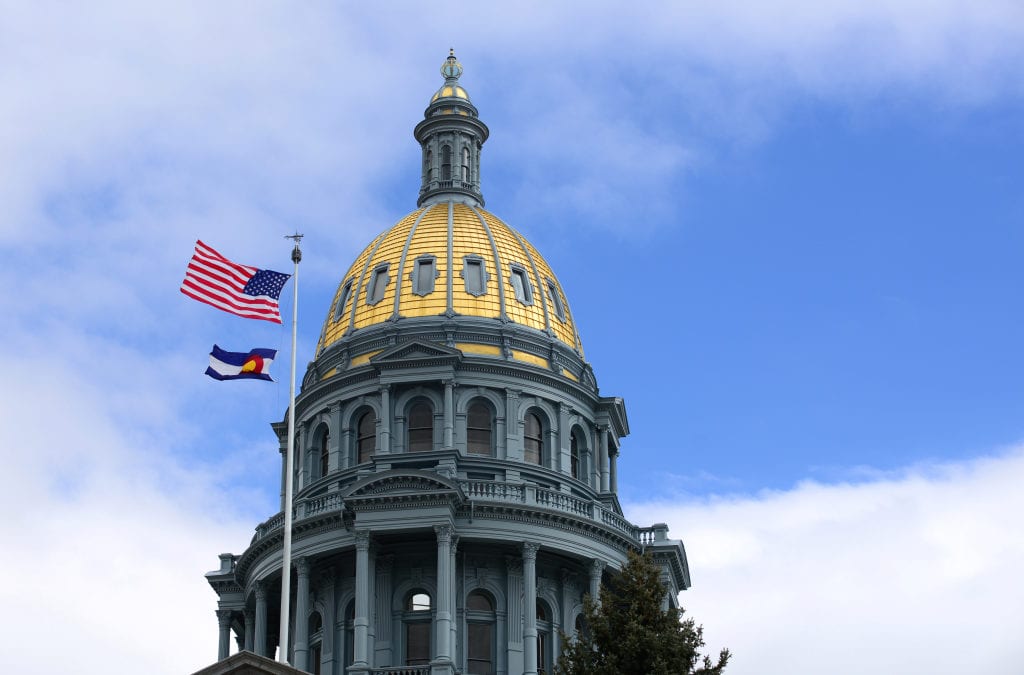Democrats reached a tentative deal Saturday to address three major policies — housing relief, tax breaks for corporate interests and taxation of tobacco and vaping products — on what’s likely to be the second to last day of the session.
No one involved is getting exactly what they wanted, and some walk away defeated. But the agreement saves several Democratic priorities, and, crucially, it has the OK of Gov. Jared Polis, whose isolated position on taxation threatened to upend the whole plan. It is a product of many hours of talks among bleary-eyed Democrats, business and education lobbyists, and the governor’s office.
“It was a very intense set of negotiations,” said Sen. Chris Hansen, D-Denver. “We had to work to a package that was sustainable, that had the support to get out of both chambers. We tried a lot of different iterations.
“I’m proud of this package. We know next year we’re going to badly need the money for education.”
None of this will be official until at least Monday, when the legislature is likely to adjourn for the year, but here are the basic terms of the agreement: Senate Democrats will dramatically scale back House Bill 1420, which proposed to eliminate tax breaks for some wealthy and corporate interests. Instead of generating an estimated $278 million next year, the bill leaves more tax exemptions alone and will generate $96 million, a fourth of which would go to low-income families and the rest of which would go to K-12 education. In the next two years, the bill would bring in a total of about $180 million, its sponsors estimate.
Under the bill, said Sen. Dominick Moreno, D-Commerce City, “There’s almost no effect on the average household in Colorado. In fact most of the effect will be centered on the very top, the top 0.7% of the highest earners in Colorado, and actually the bill will include tax relief for the lowest-income earners, since the Earned Income Tax Credit will mean more folks get support at the lowest rungs of our economic ladder.”
After the revisions, the bill would still eliminate several tax exemptions created by the federal CARES Act, plus one corporate deduction created by the Trump tax cuts of 2017. The original plan was significantly more ambitious, proposing to eliminate nine exemptions.
Polis, a multimillionaire, wants to repeal certain tax exemptions just as Democratic lawmakers do, but he opposed the bill from the onset because it did not include an across-the-board cut to Colorado’s flat state income tax. That cut has long been a policy priority for him, but Democrats control the legislature and they universally disagree with his belief in the need to cut the income tax for rich and poor alike — a belief that, for many of them, has only been strengthened during the current economic crisis.
In the redrafting of House Bill 1420, Democrats did not cave to the governor’s request. But he’s still expected to sign the bill, in large part because Colorado Democrats are intent on delivering a separate priority of his: a ballot measure to increase taxes on cigarettes and add a tax on vaping products. The legislature cannot implement this tax on its own, but it can refer it to the November ballot through House Bill 1427. The governor pushed for a similar policy at the end of last year’s session but was swiftly defied by Senate Democrats who voted against the proposal.
If that measure passes in November, it’s estimated that for the following two and a half years, $450 million in revenue would go toward the state’s general fund — which is bleeding money at the moment, due to the coronavirus-provoked recession — and after that, the money would toward preschool education, which is one of the governor’s top priorities.
A portion of the money generated by the tax hikes on tobacco and nicotine products would be earmarked for housing relief, Senate Democrats decided Saturday. In dramatic fashion, their caucus failed Thursday to agree on a bill to extend the state’s eviction moratorium, which expires this weekend, but since then there’s been a desire by some in the progressive flank of the caucus to do something for the tens and possibly hundreds of thousands who will be vulnerable to eviction in the coming months.
State Sen. Faith Winter, D-Westminster, introduced an amendment Saturday evening to House Bill 1427 that calls for $35 million to be dedicated to housing relief — renters, landlords and eviction defense funds would all benefit — over the next three years, if the referred ballot measure passes in November. That’s no sure bet; Colorado voters rejected a tobacco tax in 2016.
Some in the Senate, including Winter, are concerned about the regressive nature of a tax hike on nicotine users, as poor people and people of color are disproportionately likely to smoke. The Winter amendment for housing relief helped assuage some of their concerns.
“I’m disappointed that the eviction moratorium couldn’t pass,” Winter said, “but getting $35 million for housing is also a good day at work.”
Less than three hours before Polis’ eviction moratorium was due to expire at midnight Saturday, he issued a new, more narrow order delaying them.
This content was originally published here.

